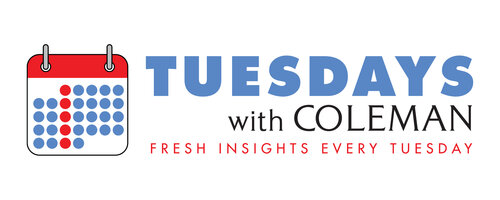
This has been a tough baseball playoff season for New York Mets fans like me. Our team was expected to compete for a World Series championship, but a disappointing first-round loss to the San Diego Padres left us having to wait until next year…again.
One person who will be there no matter which teams make it when the World Series opens this weekend is Joe Davis. Even if you’re a rabid baseball fan like me, that name may not ring a bell. Joe Davis is the successor to Joe Buck as FOX’s lead baseball announcer and he will be handling the play-by-play duties when the Astros and Phillies face each other in this year’s Fall Classic.
Davis was previously the television voice of the Los Angeles Dodgers, but has now moved up to the national stage, which began when he called the All-Star Game this past year. That marked the first time in 20 years that Buck didn’t handle All-Star Game play-by-play responsibilities; while many missed not hearing Buck call the game, most reviews of Davis’s work were positive.
Here’s the crazy part: Joe Davis is only 34 years old. He was 28 when he started calling Dodgers games on TV and by age 29, he replaced the legendary Vin Scully on a permanent basis.
So, how does someone so young achieve so much success in the competitive world of sports broadcasting? In Davis’s case, I believe it comes down to (1) preparation, (2) self-critique, and (3) studying storytelling.
Back in July, prior to the All-Star Game, the New York Times published an in-depth profile of Joe Davis entitled “Meet the New Voice of Baseball.” The Times claimed that “…nobody, at any age, has prepared more diligently for the chance…” that awaited Davis.
Davis does his homework, including spending time taking notes on what other sports broadcasters do well and don’t do as well. He also records and then reviews his broadcasts—a habit he started while in college, spending evenings listening to his play-by-play calls instead of chugging beers with his friends—so that he can learn from mistakes he makes while being careful to avoid beating himself over them. Perhaps most impressively, Davis transcribes some of his broadcasts so that he can study his words and think about ways to make them more concise.
My favorite part of learning more about Joe Davis is that he has read books on story structure. Storytelling separates the great sportscasters from the rest; Davis’s effort to hone his ability to tell compelling stories is part of the commitment he made to himself early in life to pursue this career path.
Doing play-by-play on a national television baseball broadcast is quite different from hosting a live radio show, voice tracking, or hosting a podcast. I believe, however, that every radio, streaming, and podcasting personality can benefit from emulating Joe Davis. Here’s how:
- Find other people who excel at what you do and study them closely. There’s a big difference between admiring someone and identifying what makes them especially good at their craft.
- Don’t view your job as done when your air shift is over, or your podcast is “in the can.” Record and listen to what you said and how you said it and consider ways to do it better the next time. Even if you work in an environment where no one is available to aircheck you, there’s no excuse for not doing it yourself.
- Recognize that storytelling is an art and a skill and commit to getting better at it. I suggest reading two or three books on the subject; Will Storr’s The Science of Storytelling: Why Stories Make Us Human and How to Tell Them Better is a good place to start.
For years, the mantra for athletes was “Be Like Mike.” If you’re on the air, hosting podcasts, or delivering any form of audio entertainment, I think it’s a good idea to “Be Like Joe.”

Warren,
This is a great piece. Great advice and shows what it takes to be elite. I’ll be sharing this for sure, and buying “The Science of Storytelling: Why Stories Make Us Human and How to Tell Them Better.”
Thanks for the feedback, Chris…I’m glad you enjoyed the piece!